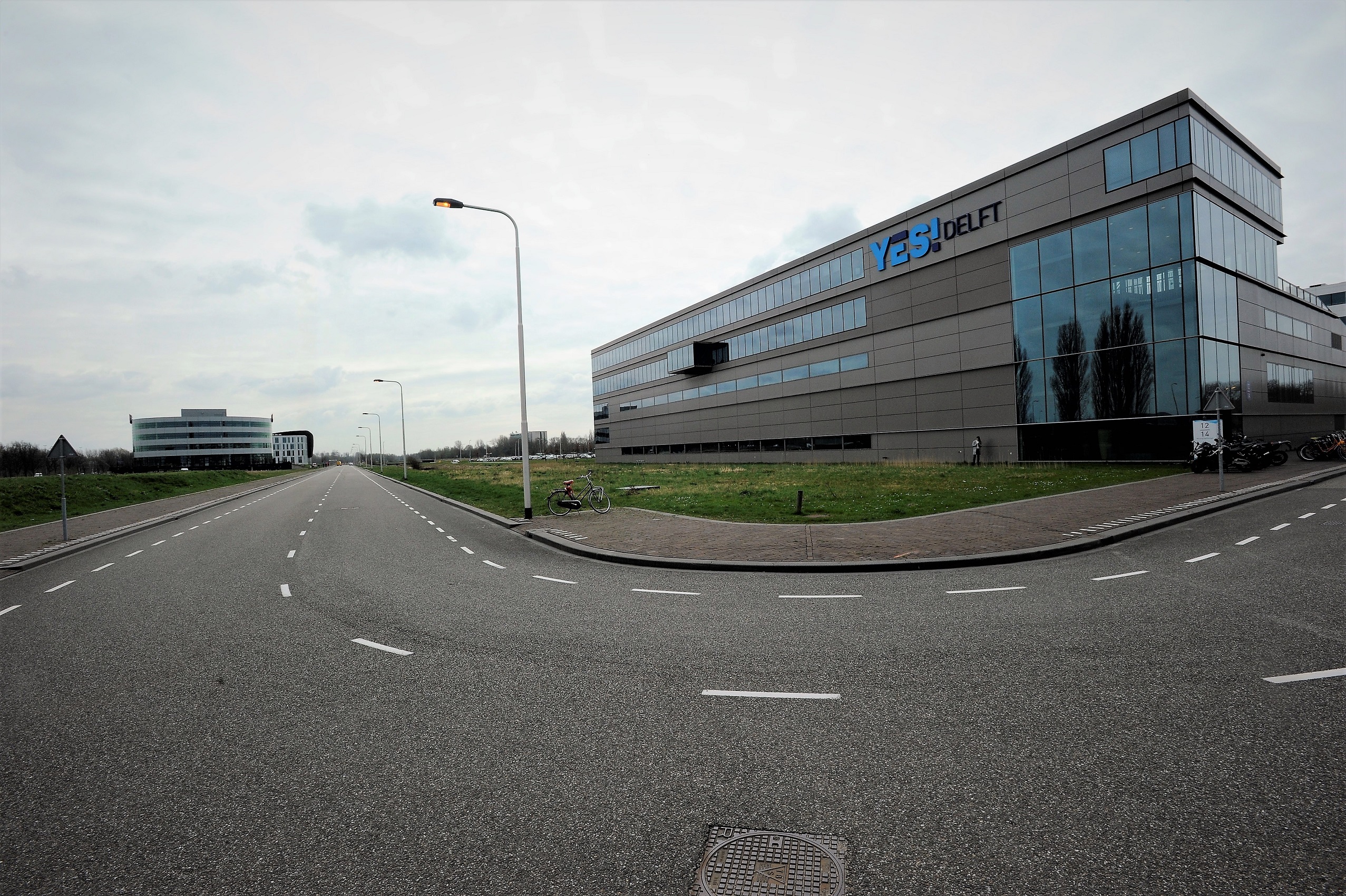Technical universities sometimes make off with their students’ inventions, reported NOS op 3. The universities, including TU Delft, assert that it is not that straightforward
Many Delft start-ups start their business at incubator Yes!Delft. (Photo: Marjolein van der Veldt)
From innovative ankle bands to websites that allow you to order in food from your sofa at home: students sometimes have brilliant ideas. But who owns these ideas?
According to NOS op 3, some students become embroiled in years-long disputes with their university about who owns the intellectual property rights to their idea. Discussions around the negotiating table tend to result in a classic battle of David and Goliath, with the lone student being no match against the legal clout and expertise of the university. And there are no clear rules setting out who actually owns the property rights to an invention.
Shouldn’t such rules be introduced pronto?
That is easier said than done. It is difficult to judge the extent to which a student may have been assisted by the university in devising his or her invention. While one student may have been intensively supervised by a lecturer, another may have only used a lab or printer on the university campus.
How do you eventually come to a decision as university?
By taking a case-by-case approach, says Rob Mayfield, director at Luris, the Knowledge Exchange Office of Leiden University. ‘These are complex issues, which can sometimes lead to frustration among students. Students are not employees and as such they are in principle the owners of their ideas. But to what extent did the student use the resources and infrastructure of the university? And was the student dependent on other publicly funded research?’
Is there really no guidance conceivable?
The Association of Universities in the Netherlands (VSNU) wants to focus on better provision of information and expectation management. ‘It is especially important that students with a new idea have a clear understanding of their rights and are familiar with the game rules,’ says spokesperson Bart Pierik. He also says that a single uniform set of rules is simply not possible. ‘Each university does things differently.’
What do you mean exactly?
Students of Eindhoven University of Technology are obliged to renounce their intellectual property rights even before they start their degree programmes by checking a box. While Delft University of Technology does not do that, it does sometimes acquire shares in student start-ups in exchange for a contribution towards the patent costs.
So is it all about money?
Not according to Mayfield of Leiden University. ‘The mission of a university is not to earn money on the backs of its students, but rather to help students find ways to have a positive impact on society.’
What’s the deal with those shares?
VSNU spokesperson Pierik says that a counter-performance is usual when a university invests in a patent. ‘Universities are public institutions that are partly funded with taxpayer money. For that reason, they cannot just spend money on student start-ups as that would create an unlevel playing field for other young enterprises.’
Furthermore, Luris director Mayfield points out that a university cannot invest funds it receives directly from the government (i.e. the central government grant) in a student company. ‘Any such investment must come from indirect funding or contract funding, through the commercialisation of research for example.’
Are innovative students often at odds with their university?
“As far as we know, it’s only a few cases a year,” says the VSNU. Delft University of Technology can also cite just two examples. NOS on 3 does not give exact numbers, but yesterday afternoon it did come up with the example of former TU Delft student Marcel Fleuren.
Fleuren is the inventor of Exo-L, the ankle strap that protects against swelling without restricting freedom of movement. The TU became a co-shareholder of Fleuren’s company. When the sales results were disappointing, the shareholders asked Fleuren to step down as CEO, he says. “Either you leave as director, or we don’t invest anymore and you’ll get the shit all over you”, they are said to have told the former student.
In the end, Fleuren felt compelled to leave, something the TU says it doesn’t recognise. “When the shareholders were of the opinion that it was better for the company that there would be another CEO, we talked intensively with Fleuren about his role in the company. Unfortunately, these attempts were unsuccessful,” said a spokeswoman.
What exactly happened is difficult to find out and conflicts sometimes occur. Nevertheless, Professor of Educational Sociology Marc Vermeulen is critical of TU Delft’s role. “A student stands alone facing a large institution. You shouldn’t want that.” By the way, Fleuren was no longer a student when he started doing business, supplements the TU.
Is this mainly a problem at universities of technology?
‘We mainly get reports of these disputes from universities of technology, but they also occur on a smaller scale in science departments,’ says Alex Tess Rutten of the Dutch National Union of Students (LSVb). ‘We hope the political arena picks up this issue.’ In fact, it already has: the VVD has submitted Parliamentary questions on the matter.
In conclusion: what is the view of the universities?
Delft University of Technology has informed us that they do not recognise themselves in the picture painted by NOS op 3. Eindhoven University of Technology calls the renunciation of intellectual property rights by students a precautionary measure given the large extent of collaboration with external companies. Furthermore, a lawyer attached to the University of Twente says that the practice is ‘much more complicated than portrayed in the report, certainly in the case of UT’, according to independent news medium U-Today.
Evelien Flink (HOP), Saskia Bonger (Delta)
Translation: Taalcentrum-VU
Do you have a question or comment about this article?
s.m.bonger@tudelft.nl


Comments are closed.